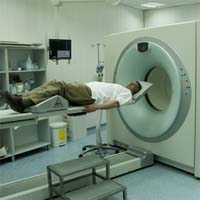A New Look at the Complex Process of Mesothelioma Diagnosis
Mesothelioma is not only a difficult cancer to treat. It’s also notoriously difficult to diagnose. Because there are no definitive biomarkers that can quickly reveal if a patient has this aggressive cancer, diagnosing mesothelioma typically involves a combination of different techniques. A new article in the Archives of Pathology and Laboratory Medicine highlights some of the most useful and important diagnostic tests for mesothelioma. Pathologists Qudsia Arif, MD, and Aliya Husain, MD, of the University of Chicago used peer-reviewed publications, text books, and consensus among their fellow pathologists to compile their recommendations. According to the report, among the possible diagnostic biomarkers for mesothelioma, four of the most reliable are the proteins calretinin, WT-1, cytokeratin 5/6, and podoplanin. These, say the…








